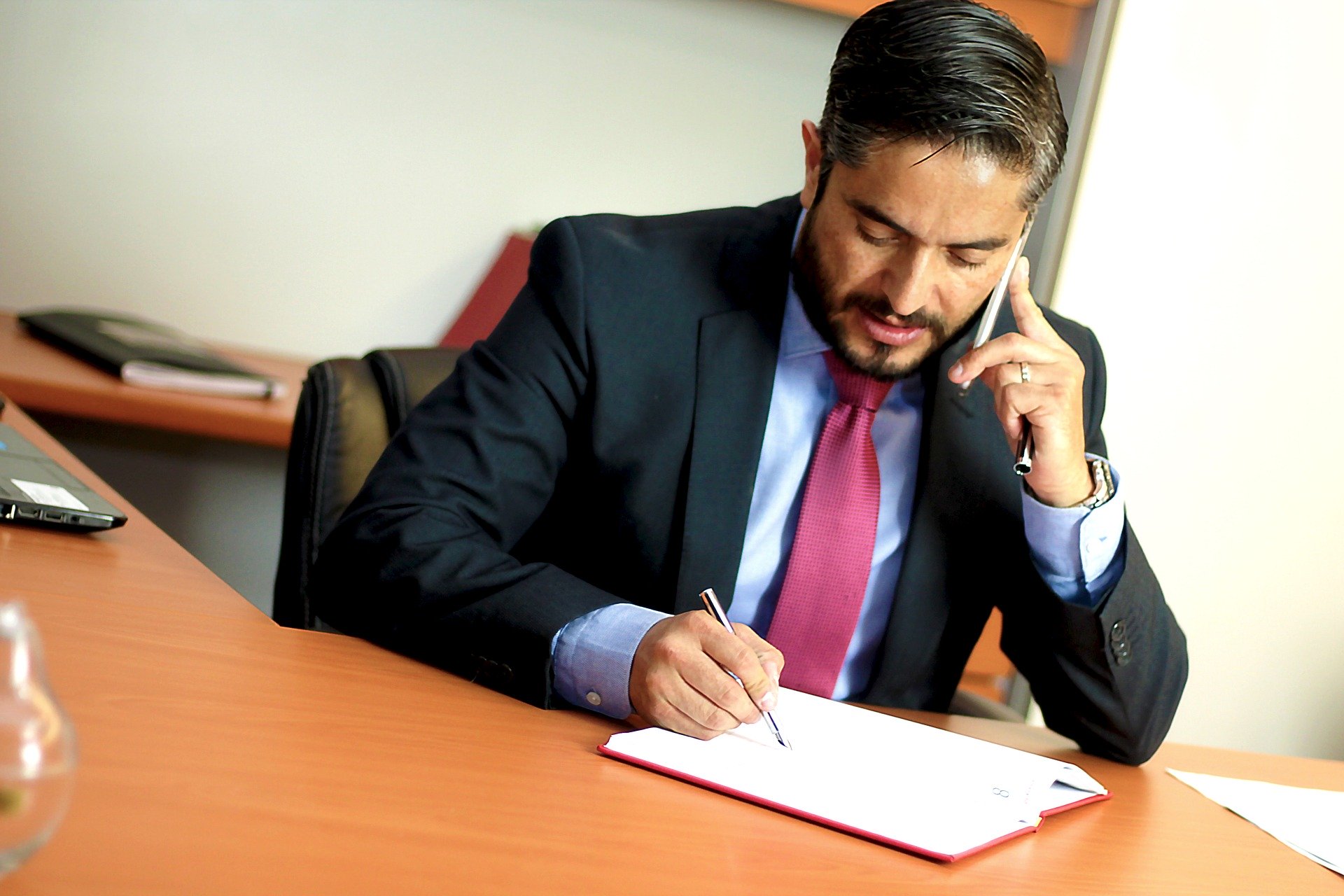How Do You Pick a Good Lawyer?

If you are a convicted felon, a lawyer can help you greatly. It is difficult to argue your case against a team of experienced government prosecutors, in the first place. Because of this, many people will pay the lawyer retainer fee or the average attorney hourly rate to get professional representation. In fact, the rise of no win, no pay lawyers makes legal support within most felons’ reach.
Yet hiring the wrong attorney, no matter how you choose to pay them, is costly. This is true whether you pick the lawyer retainer fee, the average attorney hourly rate, or a law office that hires no win, no pay lawyers. Apart from the financial aspect, an incompetent lawyer could cause you to lose your case or bring it to a less than desirable conclusion. After all, you are hiring them to make your life easier, not complicated and expensive.
Luckily, though, picking a qualified and experienced attorney isn’t difficult. It is even more easy when felons utilize the different public and private resources that help them evaluate the skills and track-record of a potential lawyer. Equally as important, felons who understand the difference between the average attorney hourly rate and the lawyer retainer fee can diminish, if not completely eliminate, the financial burden of hiring a professional legal representative.
Choosing a Lawyer: What You Need to Know
In many ways, an attorney’s journey is similar to a doctor’s. To become licensed, legal professionals must get a graduate degree, gain practical experience, and undergo testing requirements.
Just as a medical physician, attorneys play a key role in people’s lives. A bad doctor could fail to diagnose a serious condition or give patients the wrong advice. Similarly, an unqualified lawyer can damage someone’s case and deliver a less than desirable outcome.
As a result, before going into the details about fees and jurisdiction, felons must understand basic components that impact attorneys. Moreover, unlike reading legal documents, evaluating a lawyer’s background and professionalism is simple.
After that, you can make a comprehensive and fully informed decision when you choose an attorney.
The Journey: How to Become a Lawyer
Your potential representative’s background and education can tell you a lot about their skills and expertise. Before becoming a licensed attorney, here is what aspiring lawyers must attain:
- Pre-Law Degree and Exams: Firstly, law school candidates must complete their undergraduate studies and attain a pre-law degree. Examples of relevant majors include Criminal Justice, Political Science, Sociology, and other related fields. Secondly, to get admitted into law school, students must pass the LSAT exam, which is a rigorous test that evaluates their critical thinking and logical skills.
- Juris Doctor (JD) Degree: This is the most common type of law degree in the US. It takes two to three years to complete and, after that, professionals can become licensed lawyers.
- Additional Qualifications: Some attorneys get other specialized degrees, such as a Master of Laws or Doctor of Judicial Science. Because these programs require students to focus on a specific field or practice (violent crime, for example), knowing an attorney’s legal background can help you evaluate their ability to handle your case.
- Clerkship: While this is not required, many lawyers get a clerkship after attaining a JD degree to gain practical experience.
- Bar Exam: Education isn’t enough for someone to start practicing law. Beforehand, they must pass their state’s bar exam and demonstrate their knowledge.
- Practicing Law: After passing the bar and becoming licensed, attorneys can either join an established law firm or open their own office.
Legal Office Departments
When a potential client walks into a law office, they will communicate with different people that work there. Each department or employee has their own responsibilities and tasks. In addition, some are qualified to give you legal advice, while others can only assist with administrative and billing issues.
Above all else, the structure of a lawyer’s office can tell you a lot about the type of support that they may offer. For example, if a firm has accounting, paralegal, and customer service staff, they will likely have an efficient and reliable communication system.
Similarly, if you choose to pay the average attorney hourly rate (more on that shortly), your costs are greatly diminished when you work with non-legal office employees.
Having said that, large offices could also be bureaucratic and inflexible. Later in this article, we will outline the pros and cons of small vs sizable legal firms. In the mean time, here is how most attorney offices are structured:
- Principal: In a large firm, the main lawyer acts as the principal or CEO. Most of a time, an attorney may start their own, individual practice that grows into a large office with several departments and employees.
- Attorneys: Apart from the principal, a law firm may hire multiple lawyers. For example, an office that specializes in OVI charges may have multiple attorneys. Each focuses on a certain case, such as first-time offenses, drug-related DUIs, situations that involve injuries, and so forth.
- Paralegal: Staff in this department can give legal advice. However, they are not as qualified as an attorney is. Lawyers will hire paralegal employees that can communicate with clients, gather relevant information, and explain the process. A paralegal department is a good indicator that a law firm is responsive, professional, and available to assist you whenever you need it.
- Administrative: Customer service, billing, and marketing all fall under this category. While they can’t solicit legal recommendations, administrative staff take care of paperwork, appointment scheduling, and other similar matters.
Finding Criminal Attorneys
At this point, you should have a clear idea of what a lawyer’s business model and perspective is. Now, we can examine and evaluate the different characteristics that make a great attorney or legal firm.
Keep in mind, nonetheless, that each office follows its own model when they set fees or structure services. Your goal isn’t to compare between them, but to identify a lawyer or firm that can best address your needs.
Every law office has different fees and payments. Each one has its own pros and cons.
Which One: A Lawyer Retainer Fee, the Average Hourly Attorney Rate, or No Win, No Pay Lawyers?
The Lawyer Retainer Fee
Firstly, the attorney sits down with a potential client and gathers information about their case. After that, the legal team sets a fixed cost for their service.
Many people prefer the lawyer retainer fee because of how high the average attorney hourly rate is. Furthermore, a lot of law firms will allow you to make monthly installments instead of paying all of the costs up front.
For example, let’s assume that an office will handle your case for a $2,000 lawyer retainer fee. The attorney may only charge you a $500 to $700 down payment. After that, you can make monthly payments (such as $100) to take care of the remaining balance.
Perhaps most importantly, a predetermined expense incentives lawyers to quickly and successfully conclude your case without too many delays. After all, if the process takes a longer time, the attorney will work more for the same, unchanged payment.
Currently housed inmates and those who have a looming trial date might benefit the most from this.
Moreover, a fixed lawyer retainer fee covers expenses such as mail, printing paperwork, and document certifications.
The Average Attorney Hourly Rate
Paying a lawyer per hour is expensive. If you live in a small or middle-sized city, the average attorney hourly rate is between $100 and $200. In larger cities, on the other hand, the fee can be as high as $400 per hour.
Yet there are still certain benefits to this payment method. Firstly, if your case is relatively simple or straightforward, you may save money when you pay the average attorney hourly rate (as opposed to the lawyer retainer fee).
Secondly, you can manage your spending by knowing how much it will cost each time you contact the lawyer. This limits communications to important matters.
To put that into perspective, the average fixed, non-hourly rate, including the lawyer retainer fee, is $3,500 or more for felony cases.
Nonetheless, as previously mentioned, the average attorney hourly rate is costly. Equally as important, this doesn’t incentivize a legal firm to quickly conclude your case like the lawyer retainer fee does. If anything, an hourly payment could have the opposite effect.
Result-Based Fees and No Win, No Pay Lawyers
If you are looking for low cost criminal attorneys, this payment method could work best. Under a result-dependent fee, you only pay based on the outcome of your case.
A felon that has to pay a hefty fine, for example, may find an attorney that charges them a percentage of that amount and only if they successfully get it waived off.
No win, no pay lawyers, in a similar manner, do not require you to make a payment unless they deliver your desired result.
This expense model also incentivizes attorneys to quickly settle your case because their revenues are directly tied to its outcome. In many ways, no win, no pay lawyers have the same motivation as those who charge a lawyer retainer fee.
Their main downside, though, is that there are different types of performance-related fees. In our earlier example, a felon may not be able to afford to pay even a portion of their fines, especially if it is a sizable one.
Jurisdiction and Specialty
Obviously, your lawyer must fully and thoroughly understand state and county laws, especially if they represent a felon that violated local rules.
Even in federal cases, an attorney must specialize in a specific field and practice.
Local and State Laws
Every state has its own way of classifying felonies. Some have a class or level system that categorizes different offenses. Serious felonies, such as murder, tend to fall under Level 1 or Class A categories. The least harmful ones are Level 3 or Class C.
Certain states extend this to Class D and Class E felonies. Others, meanwhile, have specific punishments for individual crimes, as opposed to a class or level system. The federal government also follows its own sentencing guidelines.
Equally as important, two states may classify the same crime differently, especially when it comes to illicit drugs. However, this also applies to the way that each jurisdiction treats a DUI or OVI charge.
Therefore, your lawyer should be licensed and experienced in your specific state or county’s legal system.
What if your options are limited? Felons who live in rural areas might not have plenty of choices. Moreover, those in big cities may not afford the average attorney hourly rate of $400.
In those scenarios, finding a law office in a different city within your state could be a viable option. Many firms will communicate with clients via Skype or phone if commuting isn’t an option.
However, felons who broke municipal or county laws should work with a local lawyer.
After all, an expensive attorney that successfully handles your case is better than a cheap one that doesn’t deliver your desired outcome.
Specialty
Pick an attorney that specializes in your specific felony type or classification. For example, if prosecutors are charing you with a DUI, a legal firm that particularly focuses on intoxicated driving felonies will represent you best.
A lawyer that is experienced in an even more specific skill, such as repeat DUI offenses, may be more desirable.
When evaluating the scope of a firm’s services, it is important to look at their structure. A law office that specializes in DUIs, for instance, should have multiple attorneys with different areas of expertise (repeat offenses, drug-related DWIs, …etc.).
In this case, hiring one of their lawyers is better than working with an individual attorney in a small office that specializes in DUIs, in general, without a specific focus.
On the other hand, a sole lawyer who is skilled in one area, such as involuntary manslaughter, might provide desirable services, even more so than an expensive and bureaucratic law firm with multiple attorneys.
Hiring Your Lawyer
Every attorney or business, in general, will tell you that they are qualified and that their services are the best in the industry. However, the only way to verify this is through looking at what other clients or independent third parties have to say.
Luckily, when you shop around for your a lawyer, there are plenty of resources that allow you to truly evaluate their performance.
The Bar Association
Alongside administrating an aspiring lawyer’s testing and licensing process, the Bar Association regulates firms and attorneys in the industry.
As a potential client, your local or state Bar Association may refer you to qualified lawyers that they recommend. This is one of the best ways to ensure that you pick a reliable attorney who can handle your case.
Above all else, consumers can file complaints and reports with their local Bar Association when an attorney is unreasonable, irresponsive, or inefficient in any other way.
After that, clients can check a potential lawyer’s background and complaint history before hiring them.
Online Resources
Filing a complaint against an attorney is time consuming and difficult. Felons can’t deal with that on top of going through a legal case.
Because of this, many people prefer to look for another lawyer instead of reporting their hired one to the Bar Association. As a result, an attorney’s complaint history may not be fully insightful.
Luckily, there are many online resources that can help you evaluate and pick the right law firm. It even allows you to determine whether the lawyer retainer fee or average attorney hourly rate in your area is worth paying.
- Avvo: Through going to this website, people enjoy two main benefits. Firstly, anyone can post a legal question on Avvo and, after that, different attorneys will provide answers for free. In turn, a felon can use this platform for clarifications and to determine if their case needs a lawyer, in the first place. If it does, you can either pick a lawyer who answered your or other users’ questions in a satisfactory manner. Additionally, you can browse the reviews that clients and fellow lawyers left on the Avvo profile of an attorney that you are considering.
- FindLaw: Founded by Thompson Reuters, FindLaw is a digital library of legal resources. Furthermore, the platform enables law firms to market their services and connect with consumers. Just as Avvo, clients can leave reviews on FindLaw and share their experience working with a certain legal office.
- Google: Lastly, but certainly not least, a firm’s Google reviews can tell you a lot about the quality of their services. This is the easiest and most commonly used way to evaluate any business. Moreover, by doing a Google search, clients can also learn about their potential lawyer through looking at their Yelp, Avvo, FindLaw, and other online profiles that they have.
Your Next Move
Firstly, felons who are looking for an attorney should understand lawyers’ educational requirements, licensing process, and business models. In turn, this allows them to make a comprehensive decision that accounts for different aspects.
Secondly, the following step revolves around picking your preferred payment method and studying what each prospective law firm specializes in. Many people prefer to pay a lawyer retainer fee because its safe and almost guarantees a desirable outcome.
Others, meanwhile, might be okay with paying the average attorney hourly rate, especially when their case is easy and straightforward.
Afterwards, the Bar Association and online platforms can narrow down your choices.
Which step of this process are you in? Did you miss any crucial aspects? Being a felon, in itself, is stressful and far from ideal. Therefore, you need a lawyer who can make the process easier.
At times, a little bit of research can save you a lot of money and time.



